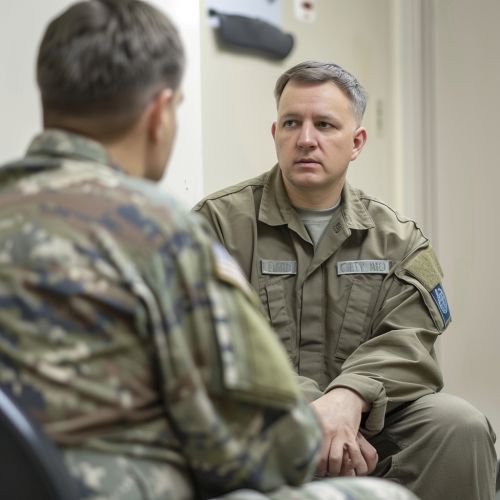Military Psychology
Overview
Military psychology is a specialized field of psychology that focuses on the mental and emotional needs of military personnel and their families. This discipline involves the application of psychological principles to the unique demands and challenges faced by those in the armed forces. Military psychologists work in a variety of settings, including military hospitals, rehabilitation centers, and combat zones, providing mental health services to active duty personnel, veterans, and their families.
History
The field of military psychology has a long and storied history, dating back to the early 20th century. During World War I, the U.S. military recognized the need for psychological screening of recruits and the treatment of war-related psychological disorders. This led to the establishment of the first psychological laboratories within the military and marked the beginning of military psychology as a distinct discipline.
Roles and Responsibilities
Military psychologists perform a wide range of duties, depending on their specific role and the setting in which they work. These can include conducting psychological assessments, providing therapy and counseling services, developing training programs, conducting research, and advising military leadership on psychological issues.
Psychological Assessments
One of the primary responsibilities of military psychologists is conducting psychological assessments. These assessments are used to evaluate a person's mental health, cognitive abilities, and personality traits. The results can help determine whether an individual is fit for military service, identify any potential mental health issues, and guide treatment plans.
Therapy and Counseling
Military psychologists provide therapy and counseling services to active duty personnel, veterans, and their families. They may use a variety of therapeutic approaches, including cognitive-behavioral therapy, trauma-focused therapy, and family systems therapy, to help individuals cope with issues such as post-traumatic stress disorder (PTSD), depression, anxiety, and relationship problems.
Training and Development
Another key role of military psychologists is developing and implementing training programs. These programs are designed to help military personnel develop the skills and resilience needed to cope with the unique stresses and challenges of military life, such as deployment, combat, and separation from family.
Research
Military psychologists also conduct research on a variety of topics related to military psychology. This can include studies on the prevalence and treatment of mental health disorders in the military, the effects of combat on mental health, and the effectiveness of various training programs.
Advising
In addition to their clinical and research duties, military psychologists often serve as advisors to military leadership. They may provide guidance on how to handle mental health issues within the ranks, advise on the psychological aspects of military strategy, and contribute to policy development.
Challenges and Ethical Considerations
Military psychologists face a number of unique challenges and ethical considerations. These can include issues related to dual loyalty (i.e., the potential conflict between the psychologist's duty to the patient and their duty to the military), confidentiality, informed consent, and the use of psychology in interrogation and warfare.
Future Directions
The field of military psychology continues to evolve in response to the changing needs of the military and advances in psychological science. Future directions may include a greater emphasis on prevention and early intervention, the development of new treatments for PTSD and other combat-related disorders, and the use of technology in psychological assessment and treatment.


